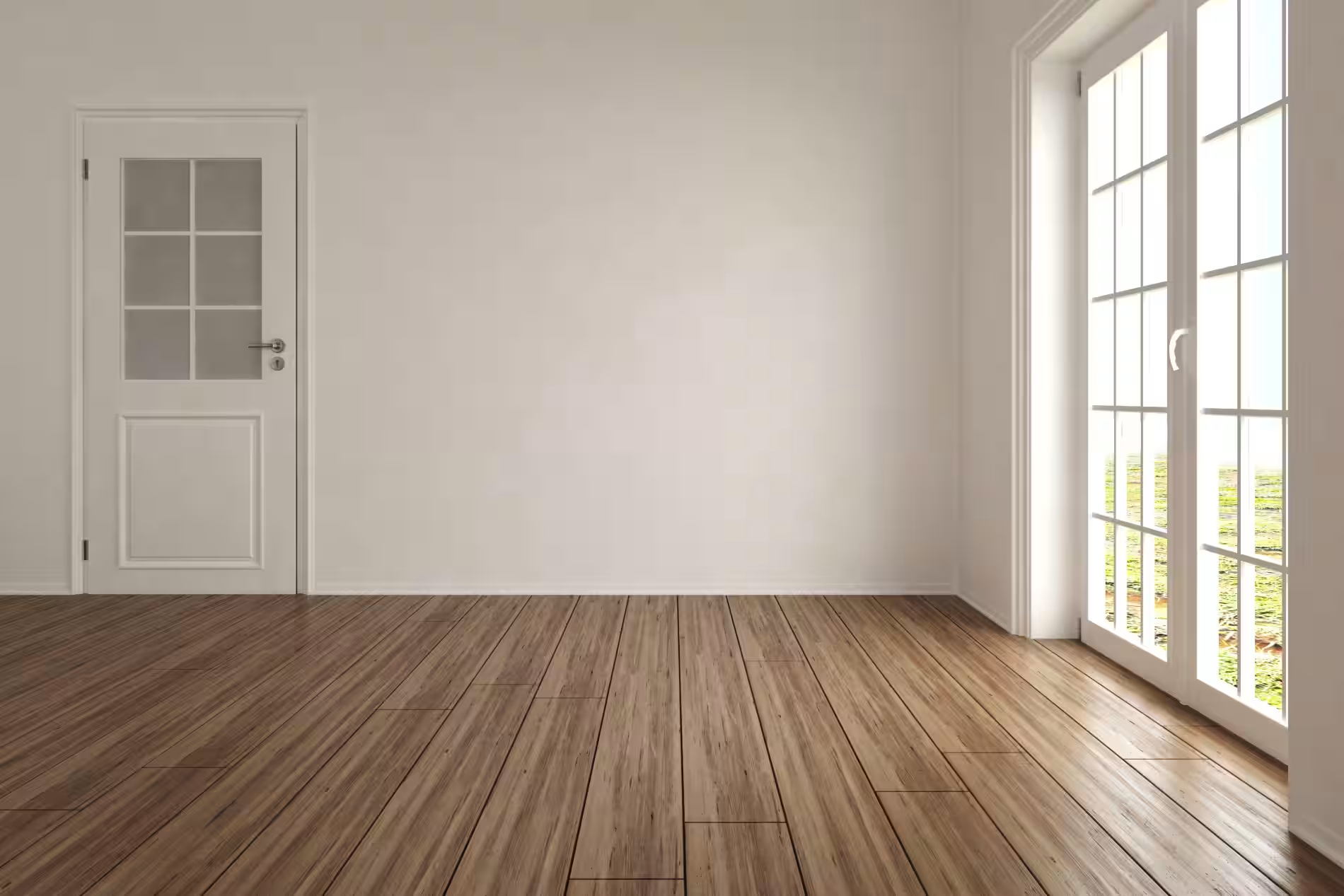Houses can be left unoccupied for all sorts of reasons. Maybe you’re living elsewhere during renovation work. Maybe you’re a landlord with a newly vacated property. Or maybe you’re going to be working away or taking a long holiday.
Whatever the circumstances, there are a few actions you should take if your home is going to be unoccupied. This guide answers the common questions people have about leaving their house empty, covering everything from council tax and household bills to keeping your home safe, secure and protected with the right insurance. We’ve broken it down into sections:
- How long can you leave a house empty?
- What risks are associated with unoccupied houses?
- How should you secure an empty property?
- How can you reduce the risks of fire and water damage?
- Who should you notify when leaving your house unoccupied?
- What insurance do you need for an unoccupied house?
How long can you leave a house empty?
Firstly, how long can you leave a house empty before it’s considered unoccupied? The answer is probably less than you think: a property is considered unoccupied if it’s been vacant for 30 or more consecutive days, so about a month.
This applies to all empty properties, regardless of the reason why they’re empty. For example, it could be that you:
- Are selling your home with a substantial delay between exchange and completion?
- Are you living elsewhere while you renovate?
- Have a holiday home or second home and only visit occasionally?
- Are you a landlord with a gap in tenancy?
- Are you inheriting the home, and it’s going through probate?
- Are taking a long holiday, working away from home or going into a hospital?
In times of upheaval, an empty home may feel like a low priority. But, since unoccupied homes have implications for insurance, council tax and utilities, it’s important that you follow a few simple steps to protect your property and your investment.
What risks are associated with unoccupied houses?
An empty home is automatically more vulnerable than an occupied one, with a number of potential hazards to be aware of, these include:
- Theft
An unoccupied home makes a much more appealing target for thieves.
- Vandalism
Again, a home that’s obviously empty is an easy target for vandals, with common issues including broken windows, graffiti and arson.
- Squatters
A house left empty for a long period of time could attract squatters, often leading to a difficult and expensive eviction process.
- Water damage
A burst water pipe can cause significant damage and be costly to repair. Homes left empty over winter are especially at risk.
- Fire
Fires can start as a result of faulty wiring, gas leaks, or a poorly maintained heating system and often go unnoticed until they’ve already caused significant damage.
However, there’s plenty you can do to improve security, deter intruders and minimise the risk of damage to your property.
How should you secure an empty property?
Firstly, you’ll need to make sure home security is as good as it can be. That means applying a few common-sense principles, as well as investing in added security measures if you can:
- Check that door and window locks meet the standard specified by your insurance company – usually, that means at least 5 lever mortice deadlocks or BS3621 locks.
- Lock up everything you can, including garages, outhouses, sheds and garden gates.
- Consider using motion-sensor security lights and a video doorbell that will notify your phone when someone approaches the front door.
- Never leave spare keys hidden, no matter how clever the hiding place.
- Use a burglar alarm to deter intruders and make sure it’s set up and working properly.
- If you can help it, don’t leave valuables at the property. Lock them in a safe if possible, leave them with someone you trust or, at the very least, keep them out of sight.
- Don’t reveal you’re away on social media.
The best deterrent of all would be a house sitter or a friend, or a family member who can stay at the house while you’re away. Failing that, you want to give the impression that someone is at home, or at least create doubt in the mind of anyone who might be observing from afar.
To create the impression of a ‘lived-in’ home:
- Keep the outside of the house well maintained. If you can, pop back to mow the lawn (and check up on the rest of the house) once a fortnight. If that’s not possible, consider asking a friend, neighbour or gardener who could do it for you. Make sure it’s someone you trust.
- Have post redirected while you’re away and cancel any milk, newspaper or subscription deliveries. Ask a neighbour to remove mail from the letterbox or inside the front door.
- Use a timer to switch a couple of lights on in the evenings.
- Ask a neighbour to put your bins out on bin day and park their car in your drive.
- Don’t disconnect the phone or send calls straight to the answerphone. Instead, have them diverted to your mobile phone or another landline.
How can you reduce the risks of fire and water damage?
Fire is also a greater risk in unoccupied buildings. Not only could an empty house become the target of an arson attack, but there’s also a chance that pests could chew through wires and start an electrical fire.
As mentioned above, good-quality security, including a burglar alarm, video-linked doorbell and motion-sensor lights, will all help, as will a smoke alarm. It’s also a good idea to make sure any flammable materials, such as paper, old furniture and other rubbish, aren’t left too close to the property.
During summer, it may be worth turning off your gas and electricity supply to minimise the chance of fire. In winter, it’s a different story. Cold, icy conditions can lead to burst pipes, presenting another dilemma: should you leave the heating on in an empty house?
During a cold snap, the liquid in pipes freezes and expands, causing the metal to rupture. Once the ice thaws, water can then escape. To avoid this, it’s recommended you keep your heating on 24 hours a day at a low temperature, around 14ºC, or use a timer to turn the heating on for a few hours in the early morning and late evening. The alternative is to drain the hot water from the system entirely. Any unoccupied house insurance policy is likely to require one of these precautions to avoid burst pipes.
You should also:
- Protect exposed pipes with insulation tubes.
- Fix any dripping taps, especially outside, as they can freeze very quickly.
- Disconnect hosepipes and cover outside taps with insulation.
- Leave the doors on the cupboard under the sink open, and open the loft door or hatch to allow warmer air to circulate around the water pipes.
Who should you notify when leaving your house unoccupied?
As well as practical and security considerations, there’s the admin side to think about too. If your property is going to be empty for a period of 30 days or longer, whatever the reason, you should inform:
- Your local council: you’ll usually have to continue paying council tax on the property, though you may be given a discount. Read our guide to find out how much council tax will cost for your unoccupied property.
- Your home insurer: many home insurance policies won’t cover a property that’s been empty for 30 days or more.
- Your water company: you might want to have the water disconnected – this is usually free, but you may need to pay a reconnection fee at a later date – or install a water meter, so you only pay for what’s being used.
- Your gas and electricity suppliers: in summer, it’s a good idea to disconnect utilities to reduce the risk of fire. In winter, you may need to keep the heating on low to prevent burst pipes – check whether this is a condition of your insurance.
- Royal Mail: redirect your mail to a different address while the house is empty. You should also cancel any regular deliveries such as milk, newspapers and veg boxes.
- TV Licensing: get in touch to let them know the house will be empty. If you already have a TV license, you can cancel it via their website.
Do you pay council tax on an empty house?
The rules on paying council tax on an empty property can be quite complicated and vary from council to council. Generally, the answer is yes; you will have to pay council tax on an empty home. The rules on paying council tax on an empty property can be quite complicated and vary from council to council. Generally, the answer is yes; you will have to pay council tax on an empty home.’ Please add the following sentence ‘Councils have recently changed the rules on paying council tax on second and empty homes, read our guide here to find out more.
At their discretion, the council may offer discounts for properties that are being renovated, cannot be lived in by law or have been repossessed, and properties left empty when somebody has died, gone into care, gone to prison, or left due to domestic abuse.
However, in certain circumstances, you may be charged more than the standard rate. Many councils now levy an extra charge on properties that are empty for a year or more to try and reduce the number of homes standing empty long term. Typically, council tax rates double after two years, with possible increases of 200% after five years and 300% after 10.
How should you insure an empty house?
If you have an empty property, or you’re preparing to leave your home empty for any significant period of time, it’s really important that you check your home insurance. Standard home insurance policies usually cover an empty house for 30 or 60 days, but it may be longer or shorter, so study the wording carefully.
Unoccupied home insurance picks up where your standard policy left off. It will cover a vacant property for between three, six, nine or 12 months, with the option to extend the cover if you need.
Taking out specialist unoccupied property insurance is the best defence you have against something going wrong while you’re away. Policies can include storm damage, flooding, fire, theft, vandalism, squatters and property owner liability – for example, if a tree falls from your property and damages a neighbour’s house.
For a few reasons, an empty home is automatically a higher risk than an occupied one. But there are plenty of measures you can take to help protect it, from enhanced security to specialist insurance. What’s more, taking the right steps to prepare your property for a period of being empty could even lower your insurance premium. If your home is of high value, it might be worth taking out High Value Home Insurance.
At Stanhope, our unoccupied home insurance benefits include up to £10,000 of general contents cover, up to £1,000,000 of buildings cover, and property owner’s liability of up to £2,000,0000 as standard. We also offer three levels of cover, from entry-level insurance covering fire, lightning, earthquake, explosion and aircraft (‘FLEA’) to all the cover you’d expect from a regular home insurance policy. To find out more, just get in touch.

